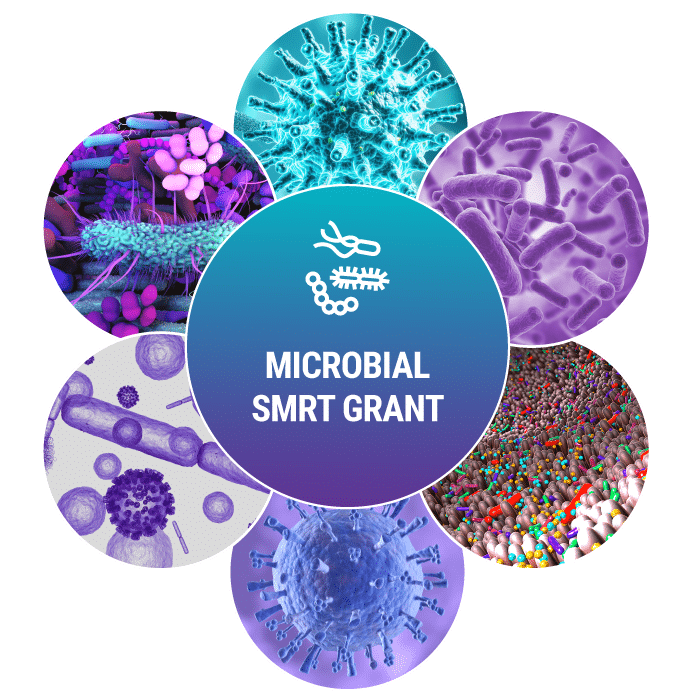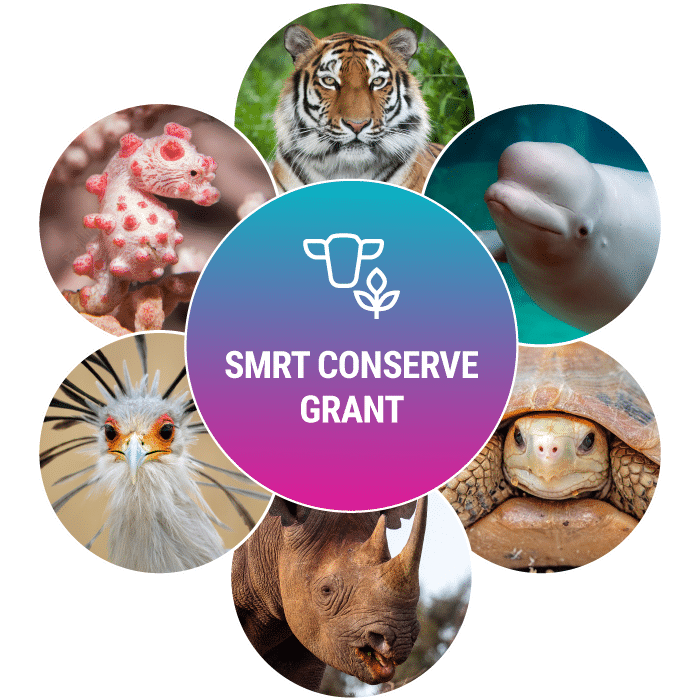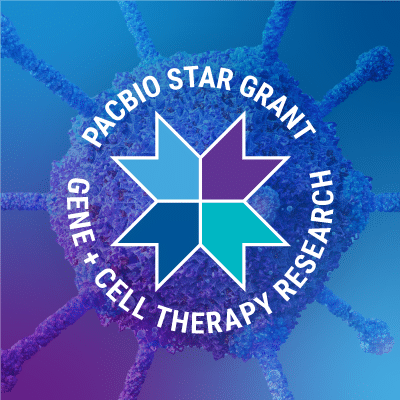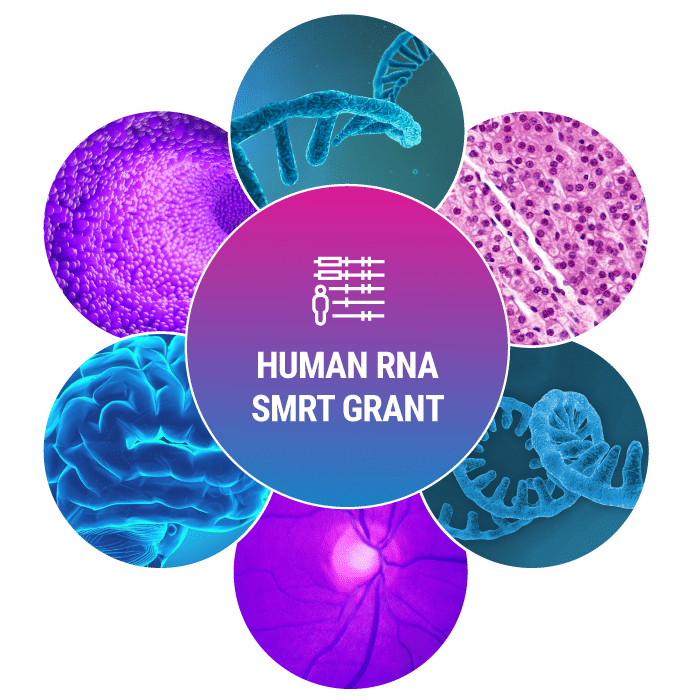Apply now
2024 PacBio SMRT Conserve Grant now open
Apply to win free sequencing to advance your conservation research.
Tell us in 100 words or less how you will use PacBio HiFi sequencing with HiC for the conservation of endangered vertebrates, all for a chance to win free sequencing for your vertebrate species of interest. Three winners will be selected to receive free PacBio sequencing with supporting HiC data.
PacBio offers complete end-to-end workflows at scale for any conservation genetics research, with the ability to sequence complete genomes with high accuracy.
Details on how to apply
We encourage scientists of any level to apply! Simply complete the short form on this page and include your 100-word proposal. You can read the official rules or reach out if you have any questions about this SMRT Conserve Grant.
The submission window closes Monday, September 30, 2024, at 5:00 PM PDT.
Get to know the SMRT Grant program — Frequently asked questions
Our grant programs support outstanding research that advances scientific discovery by providing free highly accurate sequencing. For many years, PacBio has offered researchers the opportunity to win free PacBio sequencing through the SMRT Grant program. PacBio provides multiple grants per year and to date we have given more than 20 grants of varying award sizes. Learn more about our past winners below.
For each SMRT Grant, PacBio partners with one of our service providers or Certified Service Providers to offer free consumables, library prep, sequencing, and initial bioinformatic analyses for free.
All you have to do is tell us how your research will benefit from HiFi sequencing. Submission windows open throughout the year and the process is easy — just a short abstract and some contact info. We typically notify finalists and winners within two months of submission.
Grants are offered across all areas of life science, so whether you are studying tiny microbial genomes, giant plant polyploids, exotic endangered species, or the uncharted regions of the human genome, we have a grant for you!
HiFi sequencing — or highly accurate long-read sequencing — gives you the benefits of short reads and traditional long reads in one easy-to-use technology. PacBio customers LOVE HiFi reads.
No worries! We are always available to help you get started with HiFi sequencing. Feel free to reach out at any time and we can help you find a PacBio service provider in your region and can offer a free project consultation.
There isn’t one! At PacBio we are passionate about supporting scientists through the power of HiFi sequencing. We are sure you will be happy with the sequencing data you get and just want to be part of your journey to discovery.
STAR Grant
THE 2024 GCT STAR GRANT PROGRAM Winners Announced
Thank you for your interest in the 2024 PacBio GCT STAR GRANT PROGRAM. We are thrilled to have received many excellent submissions. The winners were announced!
SMRT Grant
The 2024 Microbial SMRT Grant awardees announced
Thank you for your interest in the 2024 PacBio Microbial SMRT Grant. We are thrilled to have received many excellent submissions. The winners were announced in our blog.

SMRT Grant
2024 PACBIO SMRT GRANT - CANCER MULTIOMICS is now closed
Thank you for your interest in the 2024 PacBio Cancer Multiomics SMRT Grant. We are thrilled to have received many excellent submissions. Please check back, as the winners will be announced in the coming months on our blog.

Human RNA research
2024 PacBio Human RNA SMRT Grant Winners Announced
Thank you for your interest in the 2024 PacBio Human RNA SMRT Grant Program. We are thrilled to have received many excellent submissions. The winners were announced!
Pharmacogenomics research
PacBio Twist Long-read PGx Sequencing Grant is now closed
PacBio is excited to announce the sponsorship of a sequencing grant with the Pharmacogenomics Global Research Network (PGRN). One grant will be awarded on a competitive basis to a PGRN member who proposes a PGx project that utilizes PacBio sequencing of pharmacogenes and targets an under-represented population. Winner will be announced in our blog.
“If your genome isn’t HiFi, it’s no longer reference grade.”
— Kevin McKernan, Medicinal Genomics
2023 SMRT Grants
Thank you for your interest in the 2023 Australia + New Zealand Revio HiFi Sequencing Experience Grant. We are thrilled to have received many excellent submissions. The winning submission, Opportunities for precision medicine research in inherited retinal dystrophies using long-read sequencing, was announced in our blog.
Thank you for submitting your applications for the 2023 Plant + animal SMRT Grant. The winning submission, PacBio sequencing for climate-resilient bioenergy feedstocks, was announced on our blog.
Thank you for your interest in the 2023 Gene Therapy STAR Grant program. The STAR grant program received a large number of excellent applications, resulting in a competitive pool of promising projects. We selected five outstanding winners from around the world whose AAV-based research ranges from understanding AAV genome biology, over capsid design, to gene editing assessment.
Thank you for submitting your applications for the 2023 APAC Summer Grant Festival. We are currently reviewing submissions and will be announcing the winners on our blog.
2022 SMRT Grants
Thank you for your interest in the 2022 Plant + animal SMRT Grant program. We are thrilled to have received many excellent submissions. From this pool of excellent proposals, one application was chosen as the winner due to its utilization of multiple HiFi sequencing capabilities (including epigenetics, phasing, and pangenome construction) to confirm a hypothesis that would not be testable with competing technologies.
This year’s Cancer Transcriptomics SMRT Grant received many submissions and a multitude of innovative and promising ideas. We selected three outstanding winners from around the world whose potentially impactful ambitions span a range of research areas including computational transcriptomics and myelodysplasia.
Thank you for your interest in the 2022 HiFi for Accuracy SMRT Grant program. We are thrilled to have received many excellent submissions. We selected three outstanding winners from around the world who intend to reveal nature’s secrets, from the mysteries of cancer biology to the evolution of spiders.
2021 SMRT Grants
CO-SPONSORED BY THE UNIVERSITY OF MINNESOTA GENOME CENTER. We are pleased to announce the winners of this SMRT Grant:
- Dr. Sean Myles, and his team, at Canada’s Apple Diversity Lab within the Faculty of Agriculture at Dalhousie University who are studying the tremendous natural diversity of apples and help breed new varieties that are tasty and require less chemical input to grow
Read more about these winners and their projects on our blog post: Announcing our Plant and Animal SMRT Grant winners: Sequencing a pangenome to feed a growing population
CO-SPONSORED BY MARYLAND GENOMICS. We are pleased to announce the winner of this SMRT Grant:
- Mark Nicol of The University of Western Australia, Perth, Western Australia, Australia for his project to use HiFi sequencing to determine species-level profiling of the upper respiratory microbiota to predict asthma in young children.
For more on his project, read our blog post: Our latest SMRT Grant winner: HiFi sequencing to understand microbial world
CO-SPONSORED BY THE DNA SEQUENCING CENTER AT BRIGHAM YOUNG UNIVERSITY, CCGA, AND BIOTOOLS. We are pleased to announce the winners of this SMRT Grant:
- Claudia Gonzaga-Jauregui of International Laboratory for Human Genome Research, National Autonomous University of Mexico for her project to use HiFi sequencing to understand genetic disorders that remain unanswered even after deep characterization with other molecular tools and sequencing platforms.
- Sven Winter of Senckenberg Biodiversity and Climate Research Centre for his project to use HiFi sequencing to generate high-quality assemblies of two giraffe species to facilitate analysis of structural differences.
- Charlene Kahler of University of Western Australia for her project to use HiFi sequencing to conduct metagenomic analysis of oropharyngeal samples collected from individuals carrying meningococcal disease to identify factors involved in infection.
Read our blog post:SMRT Grant winners: When accuracy matters scientists choose HiFi sequencing
CO-SPONSORED BY ICAHN INSTITUTE FOR DATA SCIENCE AND GENOMIC TECHNOLOGY AT MOUNT SINAI. We are pleased to announce the two winners of this SMRT Grant:
- Danielle Brandes of Heinrich Heine University Düsseldorf for her project to discover structural variants related to pediatric acute lymphoblastic leukemia that have been missed by other technologies.
- Jenny Taylor of Oxford University for her project to use HiFi sequencing to resolve structural variants and phase variants for a few participants in the UK’s 100,000 Genomes Project as a demonstration of how this approach could potentially help address unsolved disease cases.
Read our blog post: Announcing the winners of our clinical research SMRT Grant – two scientists at the forefront of discovery
2020 SMRT Grants
CO-SPONSORED BY UNIVERSITY OF LOUISVILLE, GENTYANE, AND NUCLEOME INFORMATICS. We are pleased to announce the three winners of this SMRT Grant:
- Michael Metzger of Pacific Northwest Research Institute and team for their project to understand transmissible cancers in mussels
- Esaú Martínez of CIAG-IRIAF and collaborators for their project to generate a pangenome and pantranscriptome of the pistachio
- Ira Deveson of the Garvan Institute at University of Canberra and colleagues for their project to sequence the genome and transcriptome of the bearded dragon lizard
Read our blog post to learn more about these exciting collaborative research projects.
CO-SPONSORED BY MARYLAND GENOMICS. Awarded to Ali R. Zomorrodi of MassGeneral Hospital for Children and Harvard Medical School for his project to use HiFi sequencing for strain-level study of intestinal and breastmilk microbiota in celiac disease. Read blog post.
Co-sponsored by DNA Sequencing Center at Brigham Young University. Awarded to Carlos Guarnizo of Universidad de los Andes for his project to help bring harlequin toads back from the brink of extinction. Read blog post.
2019 SMRT Grants
CO-SPONSORED BY GEORGIA GENOMICS AND BIOINFORMATICS CORE, EARLHAM INSTITUTE, AND DNA LINK, INC. We are pleased to announce the three winners of this SMRT Grant:
- Ellie Armstrong of Stanford University for her project to elucidate the genomics of the African leopard
- Daniel Sheward of the University of Cape Town for his project to establish the largest longitudinal HIV sequence database ever assembled
- Jianjun Liu of the Genome Institute of Singapore for his project to generate an Asian reference genome
Read our blog post to learn more about these exciting projects.
CO-SPONSORED BY THE HUDSONALPHA GENOME SEQUENCING CENTER. Awarded to Tychele Turner of Washington University in St. Louis School of Medicine for her project to address the mysteries of autism with HiFi sequencing. Read blog post.
Update! Hear about Tychele Turner’s results: Human Genomics in the new era of long-read sequencing
2019 Neuroscience SMRT Grant program — co-sponsored by the University of Liverpool Centre for Genomic Research
Awarded to Cleo van Diemen at the University Medical Center Groningen for her project to find new genetic mechanisms associated with spinocerebellar ataxia (SCA). Read blog post.
2019 Targeted sequencing SMRT Grant program — co-sponsored by McDonnell Genome Institute
Awarded to Stéphanie Tomé of the Centre de Recherche en Myologie at Sorbonne Université/INSERM for her project to determine the size of repeat expansions in myotonic dystrophy type 1. Read blog post.
Update! Explore Stéphanie Tomé’s results: SMRT sequencing detects clinically significant repeat changes in triplet expansion disorders
2019 RNA sequencing SMRT Grant program — co-sponsored by Icahn Institute for Data Science and Genomic Technology at Mount Sinai
Awarded to Christopher Cogle of the University of Florida for his project “Inhibiting Splicing Repression as a New Therapeutic Strategy in Acute Myeloid Leukemia.” Read blog post.
CO-SPONSORED BY MARYLAND GENOMICS AT THE INSTITUTE FOR GENOME SCIENCES. Awarded to Joe Taylor of the University of Salford for his project to explore microbial communities in the rain forests of Borneo. Read blog post.
CO-SPONSORED BY HISTOGENETICS. Awarded to Susannah Sample of University of Wisconsin-Madison for her project to sequence the genome of German Shepherds. Read blog post.
2018 SMRT Grants
CO-SPONSORED BY UNIVERSITY OF DELAWARE SEQUENCING & GENOTYPING CENTER. Awarded to Shawn Trojahn and Joanna Kelley of Washington State University for their project entitled “Identifying Transcript Isoforms in Grizzly Bears with Human Therapeutic Value.” Read blog post
Update! Hear about this project from Shawn Trojahn: Using grizzly bears to unlock the biomedical promise of hibernation
2018 Plant + Animal SMRT Grant program — co-sponsored by GENEWIZ
Awarded to Arne Nolte of the University of Oldenburg and Fritz Sedlazeck of Baylor College of Medicine for their project to assemble the genome of the European cavefish. Learn more about this project
CO-SPONSORED BY THE UNIVERSITY OF MINNESOTA GENOMICS CENTER. Awarded to Kristen Sund of Cincinnati Children’s Hospital Medical Center for her project “Unsolved Mysteries: Sequencing to Solve Neurologic Disease with Structural Rearrangements.” Read blog post
Update! Hear about Kristin Sund’s results: Increasing solve rates for rare and Mendelian diseases with long-read sequencing
2018 Iso-Seq SMRT Grant Program — co-sponsored by RTL Genomics
Awarded to Xiaochang Zhang of the University of Chicago for his project “Uncovering mRNA Splicing Diversity in Cerebral Cortex Development.” Read blog post
CO-SPONSORED BY UNIVERSITY OF MARYLAND’S GENOMICS RESOURCE CENTER. Awarded to Mark Webber of Quadram Institute for his proposal to study preventing infection for premmies. Read blog post


